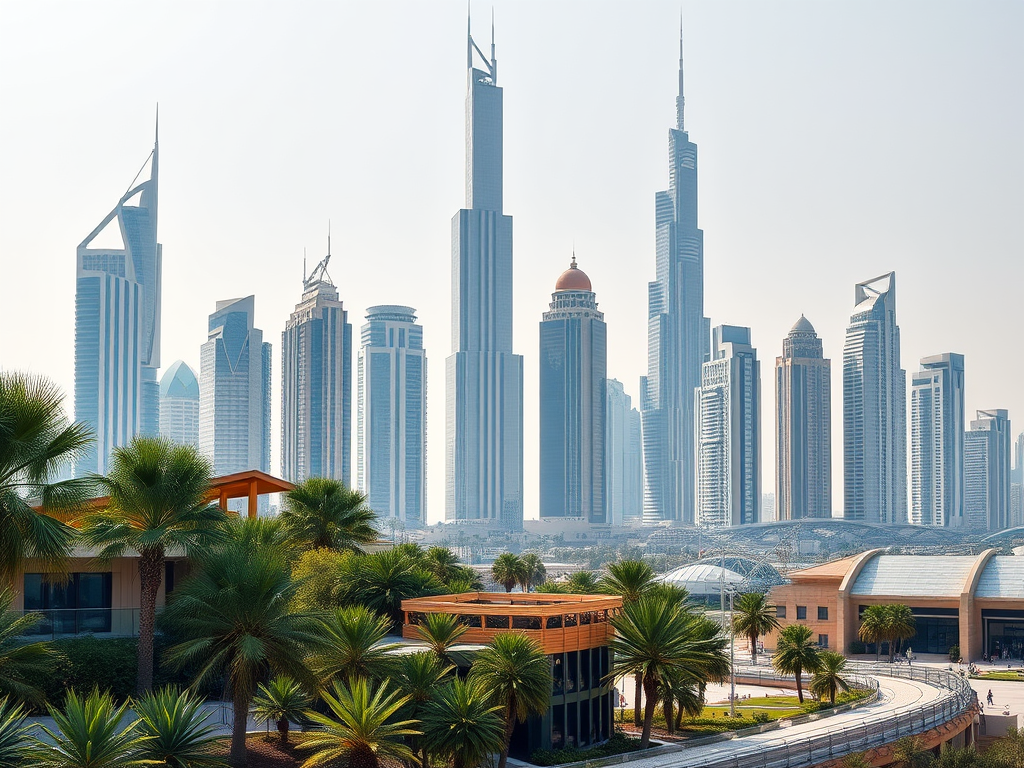The growth of ethical investment funds in Dubai is a reflection of the increasing awareness and demand for responsible investing in the financial landscape. In recent years, investors have shown a marked preference for funds that prioritize environmental, social, and governance (ESG) criteria. This shift is not only transforming the way investment strategies are constructed but is also contributing to a sustainable economic future for the region. Dubai, as a hub for innovation and finance in the Middle East, has embraced this trend, leading to a booming sector that appeals to both local and international investors. As a result, the ethical investment sector is anticipated to continue growing, reshaping the broader investment ecosystem.
What Drives Ethical Investments in Dubai?

The surge in ethical investment funds in Dubai can be attributed to several key factors. First, a growing number of investors, particularly millennials, are becoming increasingly conscious of the societal and environmental impacts of their investments. Second, regulatory initiatives from the UAE government encouraging sustainable practices have propelled this growth forward. Third, corporate responsibility is gaining traction, as companies recognize the value of building positive reputations through sustainable practices. Additionally, the rise of social media has allowed consumers to hold businesses accountable, further pressing the need for ethical investing. Lastly, international investment trends toward sustainability are influencing Dubai’s investment landscape, prompting local funds to align their strategies accordingly.
The Impact of Regulatory Frameworks

The establishment of supportive regulatory frameworks has played a crucial role in promoting ethical investment funds in Dubai. The Dubai Financial Services Authority (DFSA) has introduced guidelines aimed at enhancing transparency and accountability for ESG-related investments. Furthermore, the UAE’s Vision 2021 emphasizes the need for sustainable development, leading to regulatory incentives such as tax exemptions for green investments. These frameworks serve to attract ethically minded investors while ensuring that funds adhere to global best practices. Consequently, a growing number of asset managers are launching ethical funds to meet the demands of this evolving market landscape. Specific initiatives, including green bonds and sustainable investment indices, are becoming instrumental in shaping investor choices.
Dubai has witnessed the emergence of various types of ethical investment funds that cater to diverse investor interests. Understanding these different fund types is vital for any prospective investor. Here are some of the primary categories:
- Green Funds: Focused on financing projects that contribute to environmental sustainability, such as renewable energy initiatives.
- Social Impact Funds: Aim at supporting social enterprises that address societal issues like poverty, education, and healthcare.
- Sustainable Real Estate Funds: Invest in properties built with eco-friendly materials and those that promote energy efficiency.
- Ethical Equity Funds: Comprising stocks of companies that adhere to ethical business practices across various sectors.
- Sharia-compliant Funds: These funds not only meet ethical criteria but also adhere to Islamic finance principles, appealing to local investors.
Challenges Facing Ethical Investment Funds
Despite the promising growth of ethical investment funds in Dubai, several challenges remain. One major issue is the lack of standardization in ESG criteria, which can lead to confusion among investors regarding what constitutes an ‘ethical’ investment. Additionally, the relatively nascent market means that there is limited access to data and analytics for assessing the performance of these funds compared to traditional investments. There is also the risk of “greenwashing,” where companies exaggerate their commitment to sustainability to attract investment. Moreover, educating investors about the nuances of ethical investing is crucial, as many are still unaware of its potential benefits and returns. Lastly, the global economic uncertainties may pose risks that can affect the attractiveness of ethical funds.
Conclusion
The growth of ethical investment funds in Dubai is indicative of a significant shift towards more responsible investing practices within the financial sector. As awareness around environmental and social governance continues to rise, local regulations and market dynamics will further nurture this trend. While challenges persist, the potential for ethical investments to drive change and foster sustainable development is undeniable. By capitalizing on the collective commitment of both investors and regulators, Dubai is poised to emerge as a leading destination for ethical investment opportunities.
Frequently Asked Questions
- What are ethical investment funds? Ethical investment funds are investment vehicles that prioritize investments based on environmental, social, and governance (ESG) criteria, promoting sustainability and responsible practices.
- Why is ethical investing important? Ethical investing is essential as it enables investors to align their financial goals with their values, contributing to positive social and environmental change.
- Is there a demand for ethical investment funds in Dubai? Yes, there is a growing demand for ethical investment funds in Dubai, driven by increasing awareness among investors regarding sustainability and responsible practices.
- What challenges do ethical investment funds face? Ethical investment funds face challenges such as lack of standardization in ESG criteria, limited access to data, risks of greenwashing, and the necessity for investor education.
- How does the UAE government support ethical investments? The UAE government supports ethical investments through regulatory frameworks that promote sustainability, tax incentives for green investments, and strategic initiatives aimed at fostering a sustainable economy.

